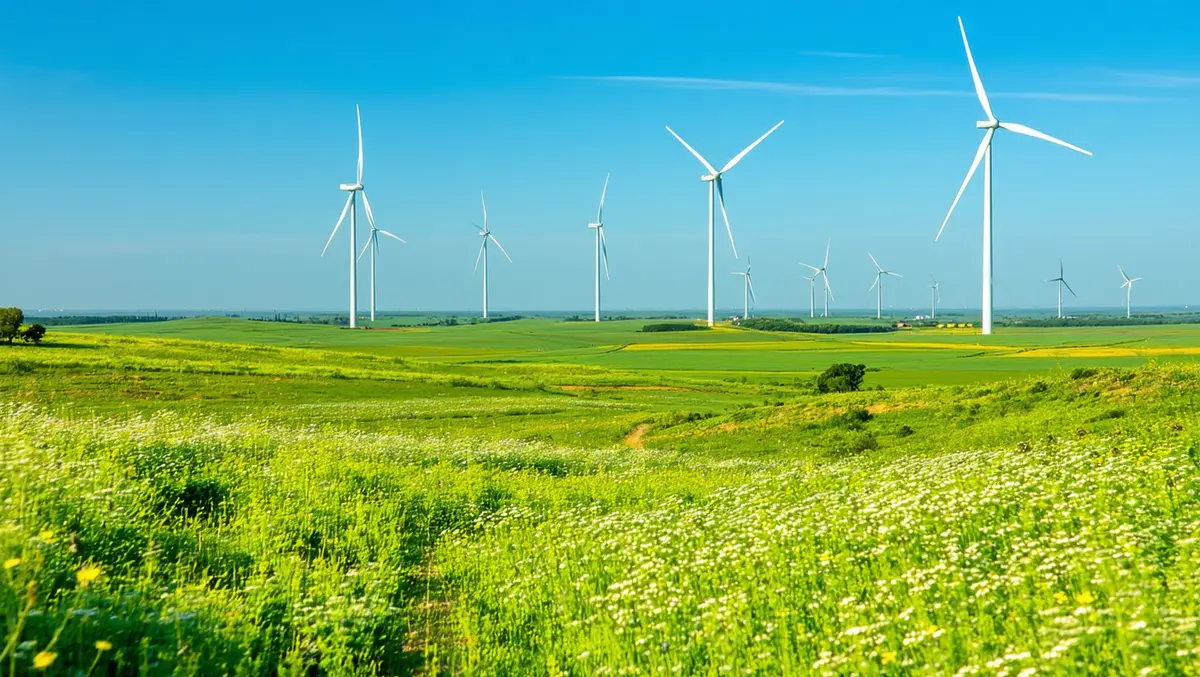
NBN Co secures wind power deal to cut carbon emissions
NBN Co has commenced receiving renewable electricity from the Macarthur Wind Farm in Victoria as it progresses towards reducing its carbon emissions.
The company has entered a six-year Power Purchase Agreement (PPA) with AGL, through which it will purchase approximately 90 GWh of renewable energy annually. The energy is supplied to the grid and is accompanied by renewable energy certificates from the Macarthur Wind Farm, located 16 kilometres east of Macarthur, between Hamilton and Warrnambool in south-western Victoria. The site contains 140 wind turbines with a total capacity of 420 MW. Historically, it generates over 910,000 MWh of renewable energy each year, sufficient to power around 171,000 average Australian households.
The PPA with the wind farm marks a crucial development in NBN's goal to procure 100% renewable electricity by December 2025. This initiative is further supported by NBN's previous agreements, including their involvement with a solar farm at West Wyalong in New South Wales. This first PPA spans 10 years, with NBN contracting to purchase approximately 90 GWh annually, or about 62% of the solar farm's expected output.
In a further commitment, NBN signed a third PPA in November 2023, a 10-year contract enabling the construction of a new solar farm at Munna Creek near Gympie in south-east Queensland. Under this PPA, NBN will take around 59 GWh annually - representing over 20% of the anticipated output from this 467-hectare solar facility. The Munna Creek farm is expected to start operations in the latter part of 2025, with an estimated capacity to power 41,000 Australian homes.
NBN's renewable energy strategy is aligned with its membership of RE100, a global initiative comprising over 400 businesses committed to 100% renewable electricity. Notably, NBN was the first Australian telecommunications company and first Australian Government Business Enterprise to join the initiative.
The company has also set specific, science-based emissions reduction targets which have received validation from the Science Based Targets initiative (SBTi). These targets include a 95% reduction in Scope 1 and 2 GHG emissions by FY30, starting from a FY21 baseline. Additionally, NBN aims to reduce Scope 3 emissions related to product use by 60% per new device sold by FY30 from a FY21 baseline. The company also plans for 80% of its suppliers, covering purchased goods and services, capital goods, and downstream logistics, to establish science-based targets by FY27.
NBN Co is committed to long-term emissions reductions and achieving net-zero emissions by 2050, if not sooner. The firm plans to submit its long-term targets to the SBTi for validation in the near future.
Stephen Smith, Executive General Manager, Safety, Wellbeing and Sustainability at NBN Co, stated, "The nbn network is a significant consumer of electricity and the commencement of the PPA for renewable electricity from the Macarthur Wind Farm is an important milestone for us in meeting our target of 100% renewable electricity purchases from December 2025.
"Expanding the use of renewable energy sources, investing in energy efficiency including deployment of fibre, and exploring innovative solutions will help us drive down our emissions and operating costs.
"We have a responsibility to operate sustainably, enabling long-term social, economic and environmental value for customers and for the nation."
He further affirmed, "In doing so, we remain committed to operating a climate-resilient resource-efficient network and business, aligned with the latest climate science, which protects the natural environment."


